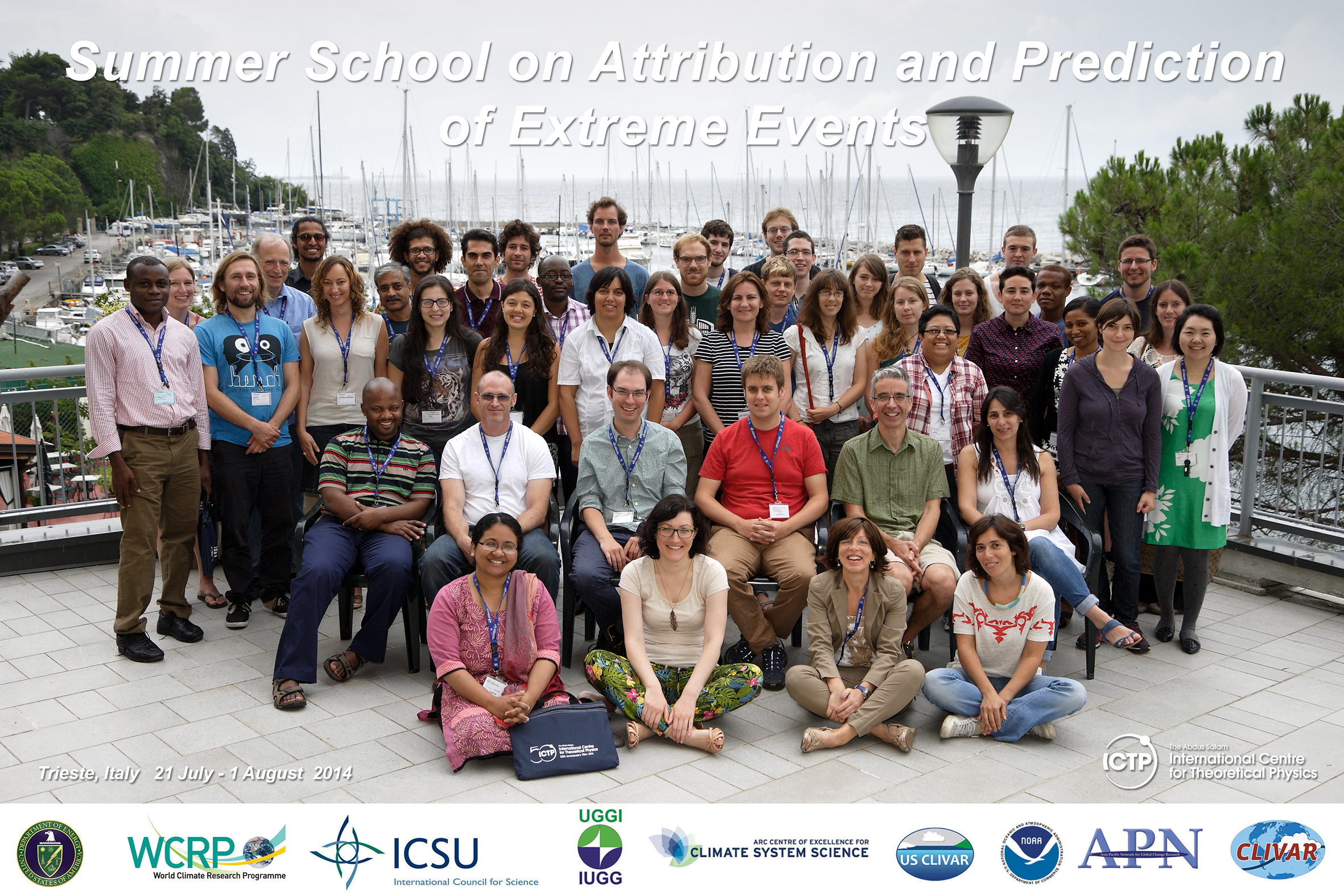21 July to 01 August 2014 - Trieste, Italy
The Abdus Salam International Centre for Theoretical Physics (ICTP) is organizing, in collaboration with the World Climate Research Programme (WCRP), a Summer School on Attribution and Prediction of Extreme Events, to be held at ICTP, Trieste (Italy).
PURPOSE OF THE SCHOOL
The purpose of the school is to train students with outstanding research potential in the techniques that will be required to better understand observed and future changes in extremes. There is a pressing need to educate future researchers in the techniques given the prominence and importance of societal and scientific questions about extreme events that are receiving increasingly intense attention in the minds of the public and their policy makers. The school will be organized around three broad topic areas:
- Statistical theory underpinning extreme value analysis,
- Detection and attribution of observed changes in the frequency and/or intensity of extremes, and
- Event attribution, and the physical mechanisms that are involved in amplifying and/or extending the duration of some specific extreme events such as heat waves
The school will also educate students in the development of some of the key data resources that are used to place current extremes into a historical context, and will provide insights into some of the emerging thinking on the near term prediction of the likelihood of extreme events. The school will also teach the importance of understanding the physical mechanisms that produce many of the most impactful extreme events, including "complex" hydrologic extremes such as drought and the role of coupled land-atmosphere feedback mechanisms in amplifying extreme temperature events.
FORMAT
For the two week duration of the school, lectures will take place in the mornings, with occasional lectures in the evenings. The afternoons and remaining evenings will be devoted to the practical application of the material covered in the lectures. This will be accomplished through introductory lab sessions and a set of research problems that will form the core of the school.
The research problems will be carefully set to ensure that they are tractable through team work with the resources available at the ITCP, that students working in teams with experienced lecturer-advisors will be able to advance the problems over the 2-week duration of the school, and that the results are likely to be publishable.
Teams of about 5 students will work on one of the problems for the duration of the school. The research topics will include data set development, detection and attribution, extreme events prediction, and event attribution. Many, if not all of these, will rely on both the use of the advanced analysis techniques that will be taught at the school and a understanding of the relevant underpinning physical processes. It is anticipated that students will give an update on their progress half way through the school, and that they will present preliminary results at the end the school together. The expectation would be that at least some of these projects would lead to peer-reviewed publications.
PARTICIPATION AND SELECTION PROCEDURE
Scientists and students from all countries which are members of the United Nations, UNESCO or IAEA may attend the workshop. As it will be conducted in English, participants should have an adequate working knowledge of this language. Although the main purpose of the Centre is to help research workers from developing countries through a programme of training activities within a framework of international cooperation, students and post-doctoral scientists from advanced institutes are also welcome to attend.
RESULTING PAPERS
This summer school resulted in 7 peer-reviewed papers in the journal Weather and Climate Extremes.


